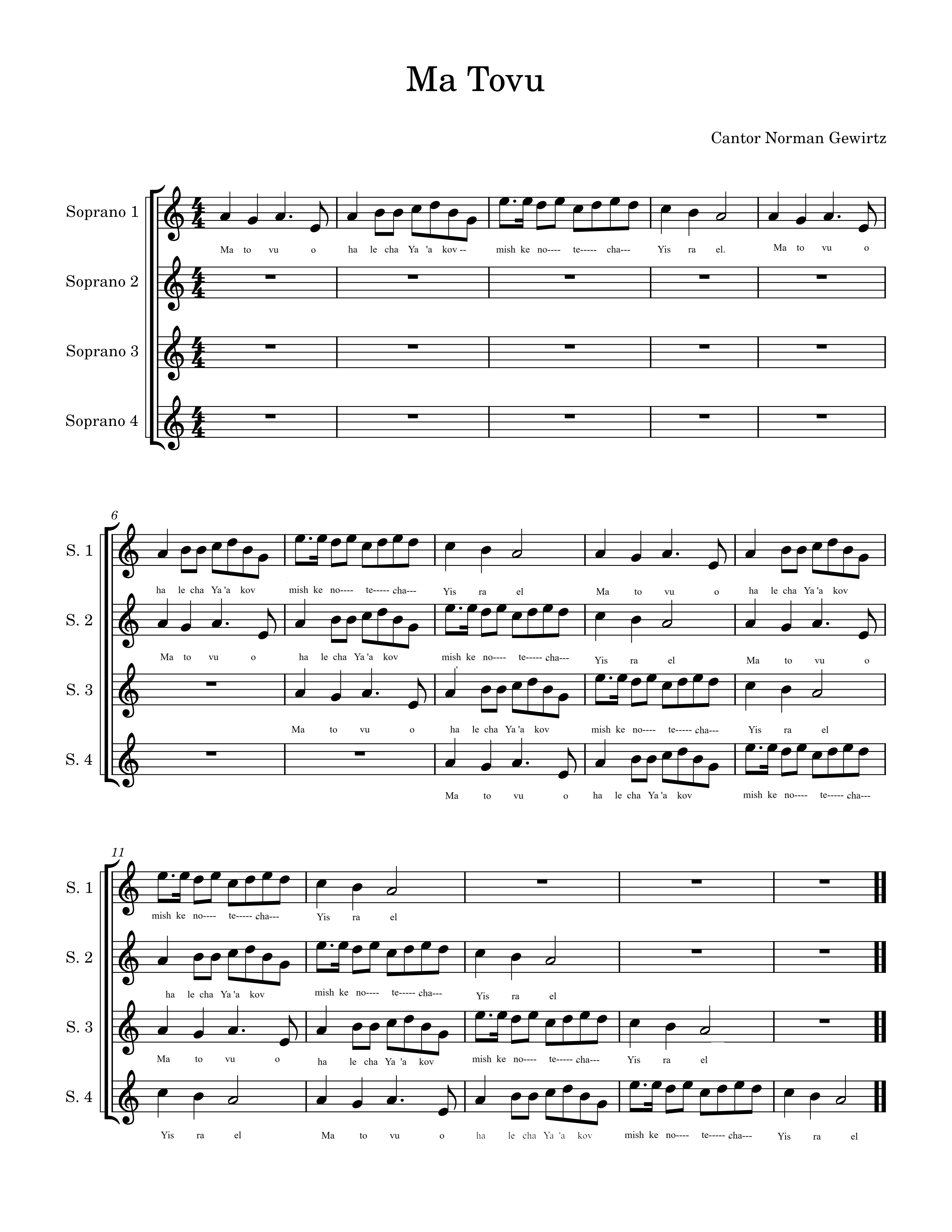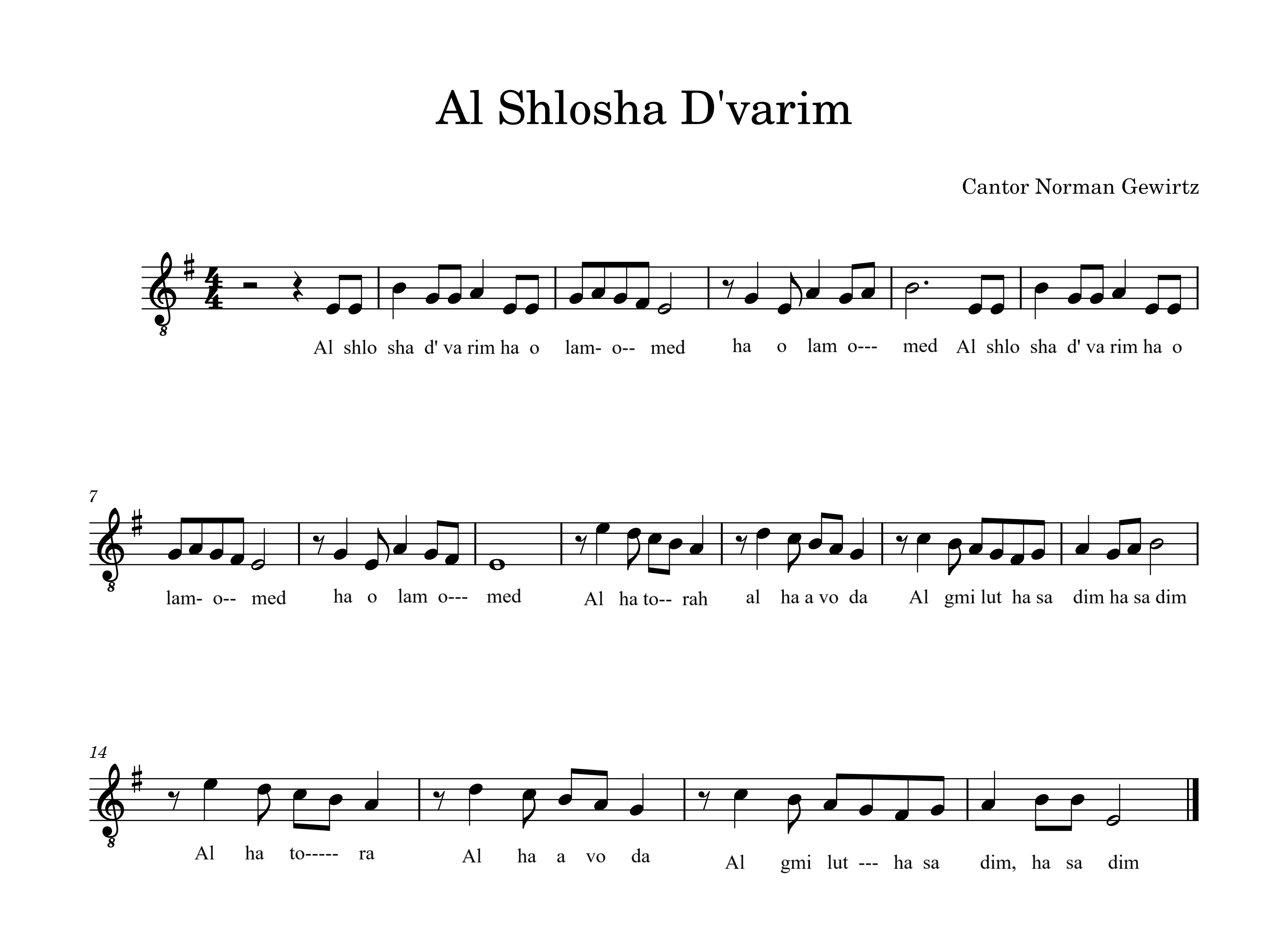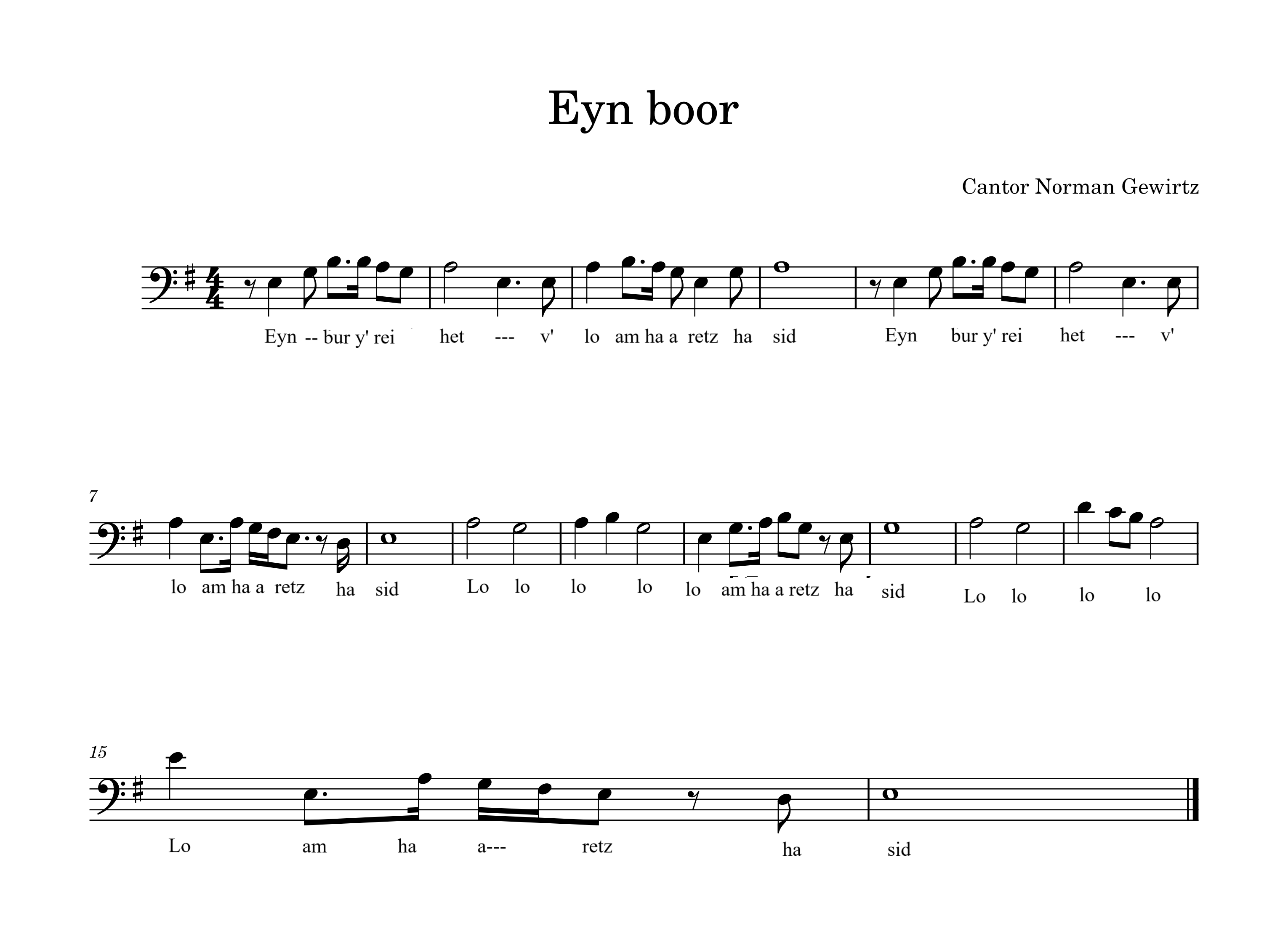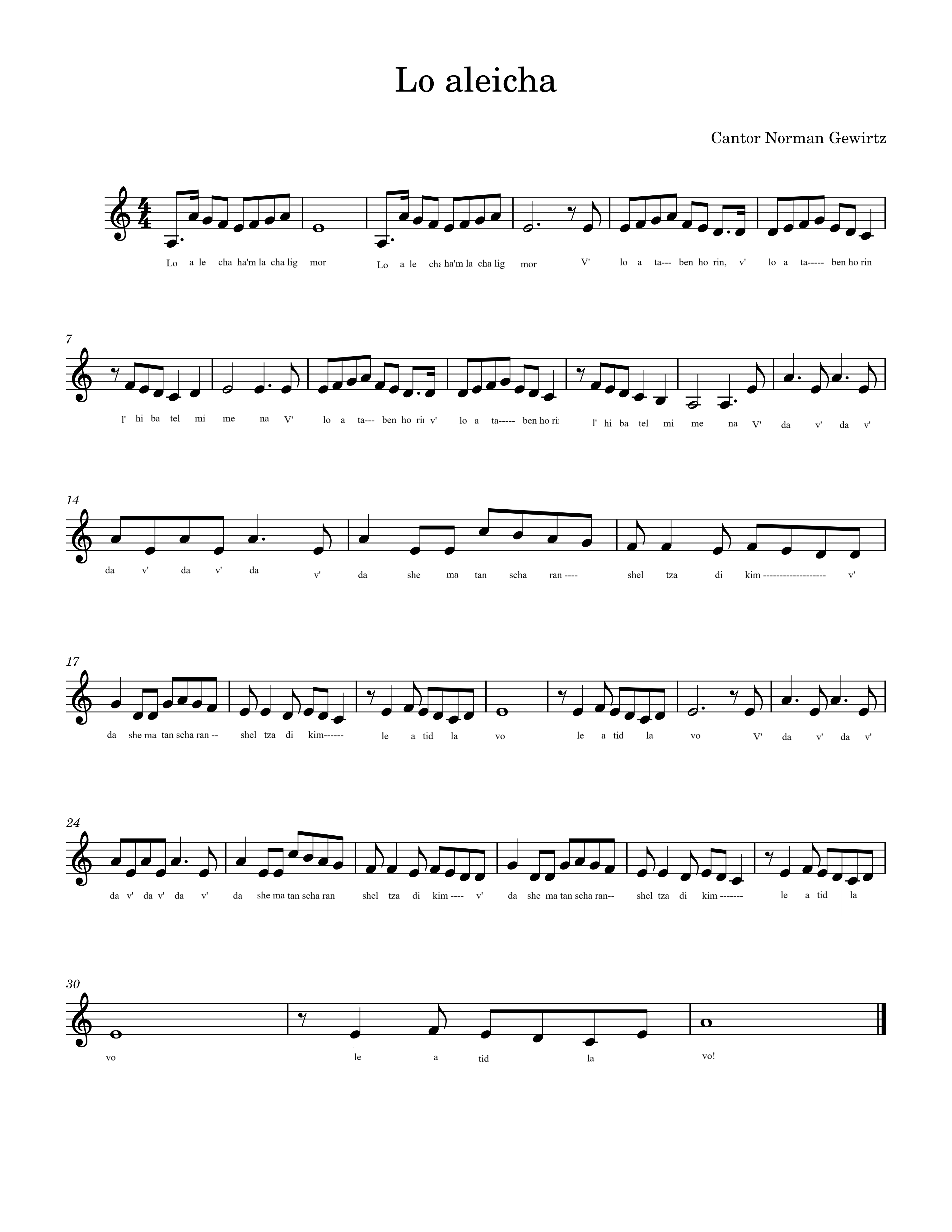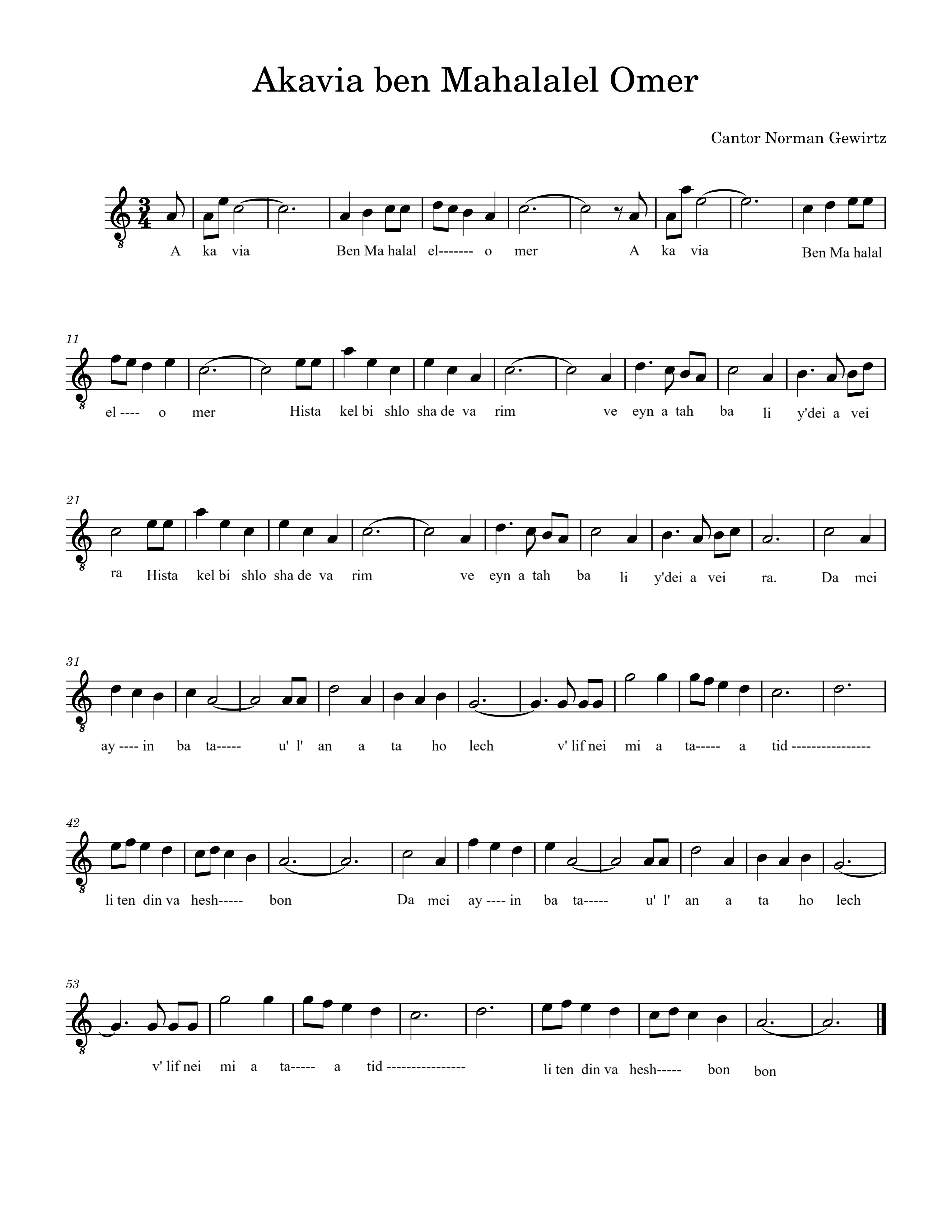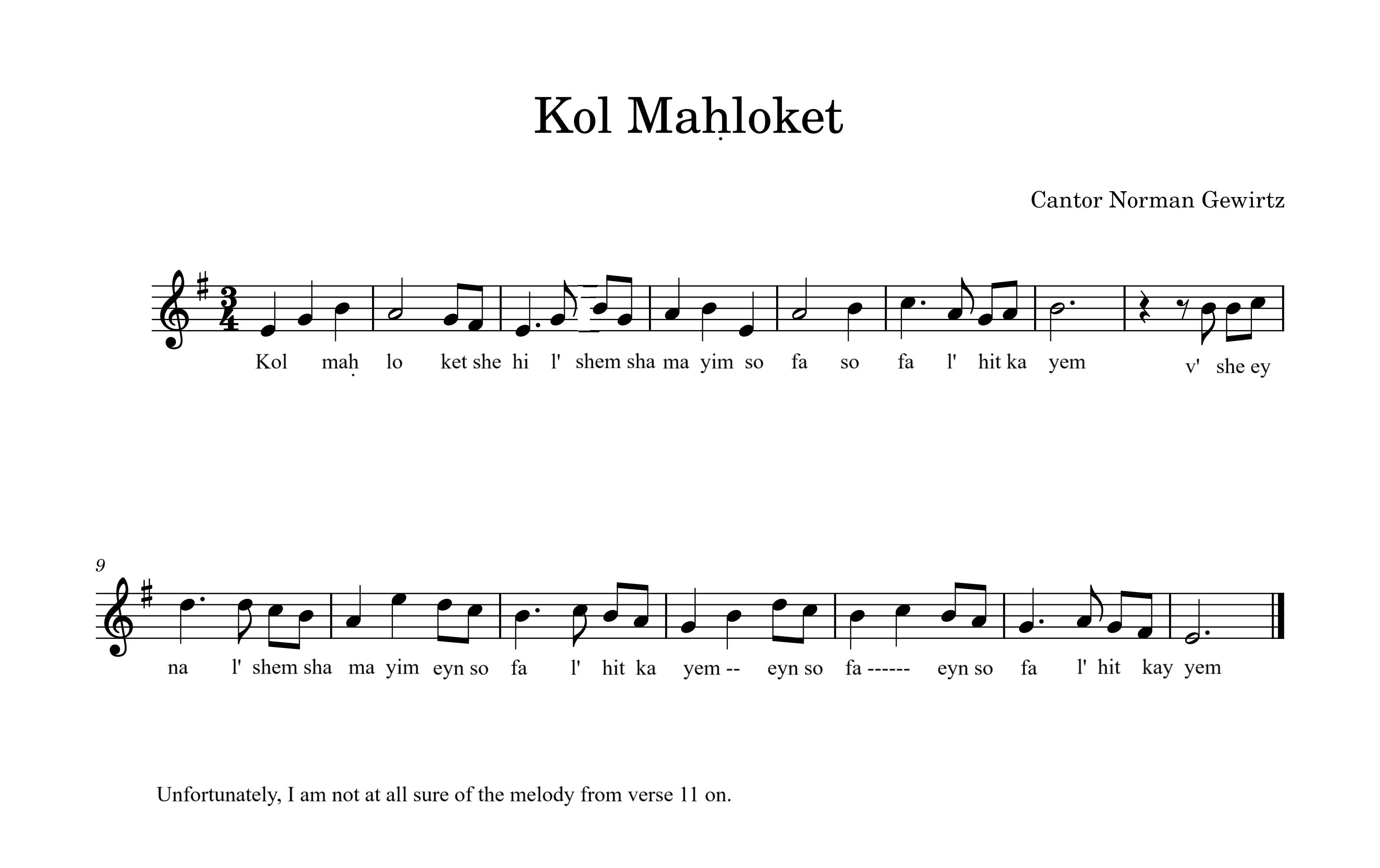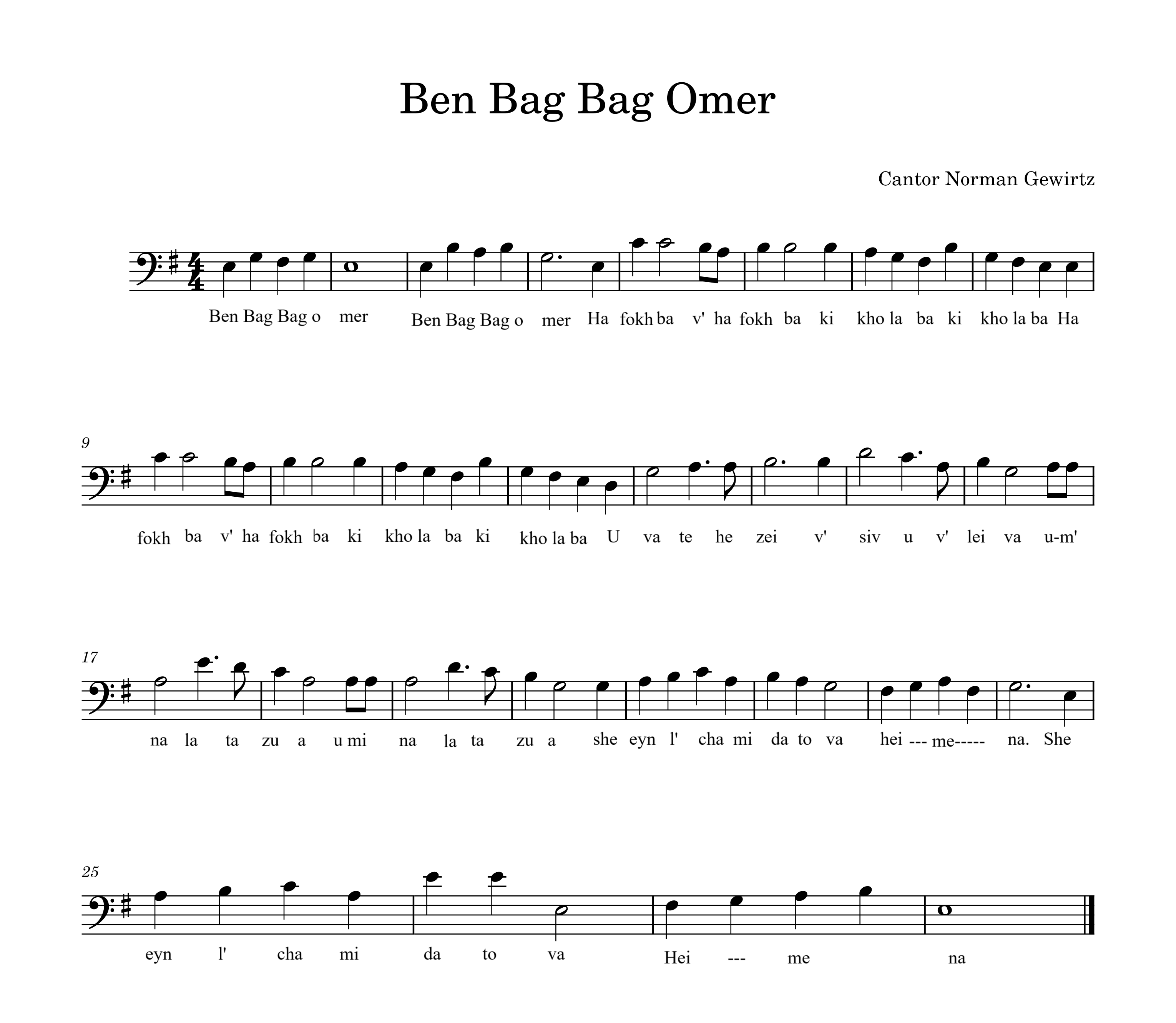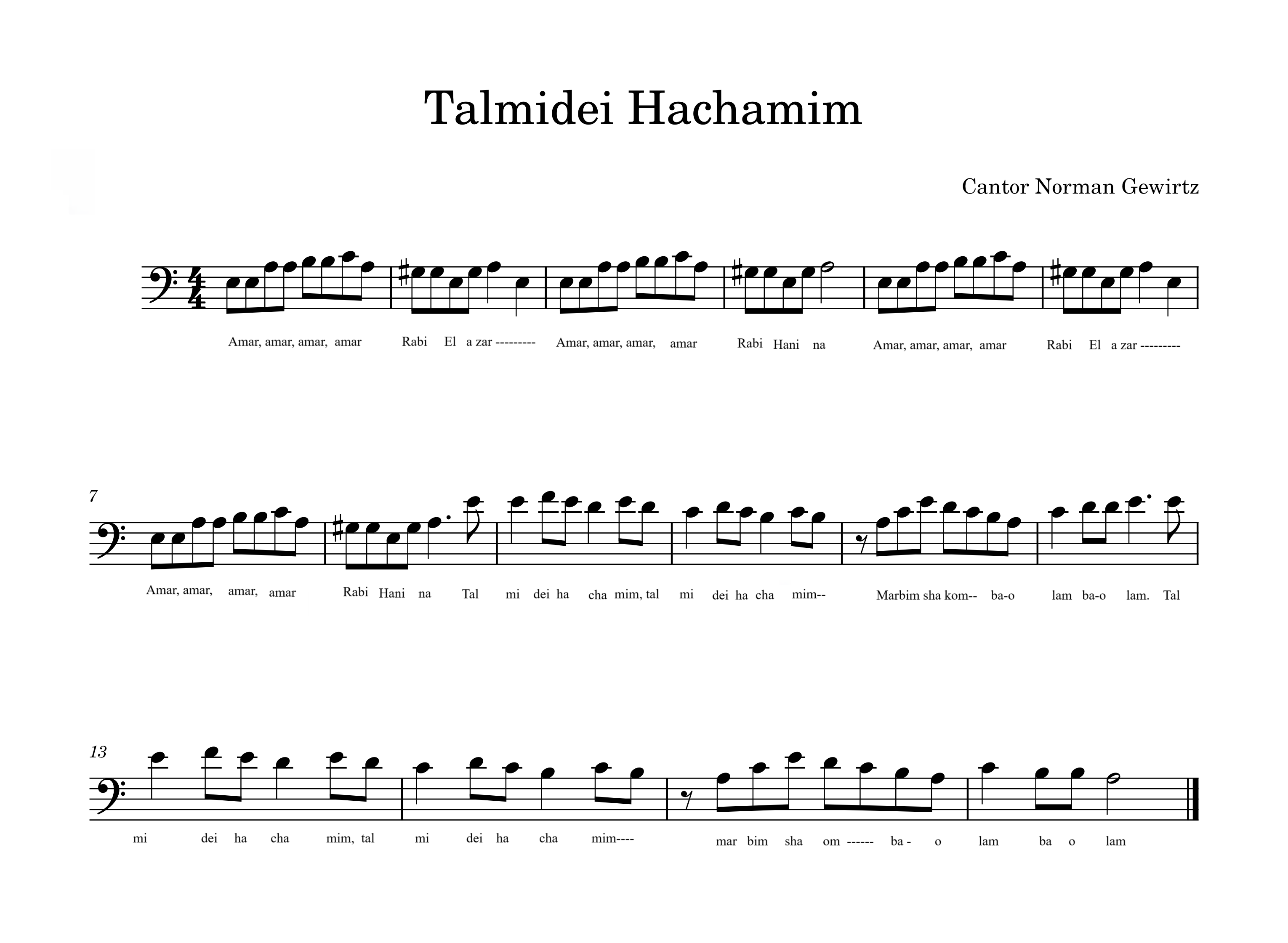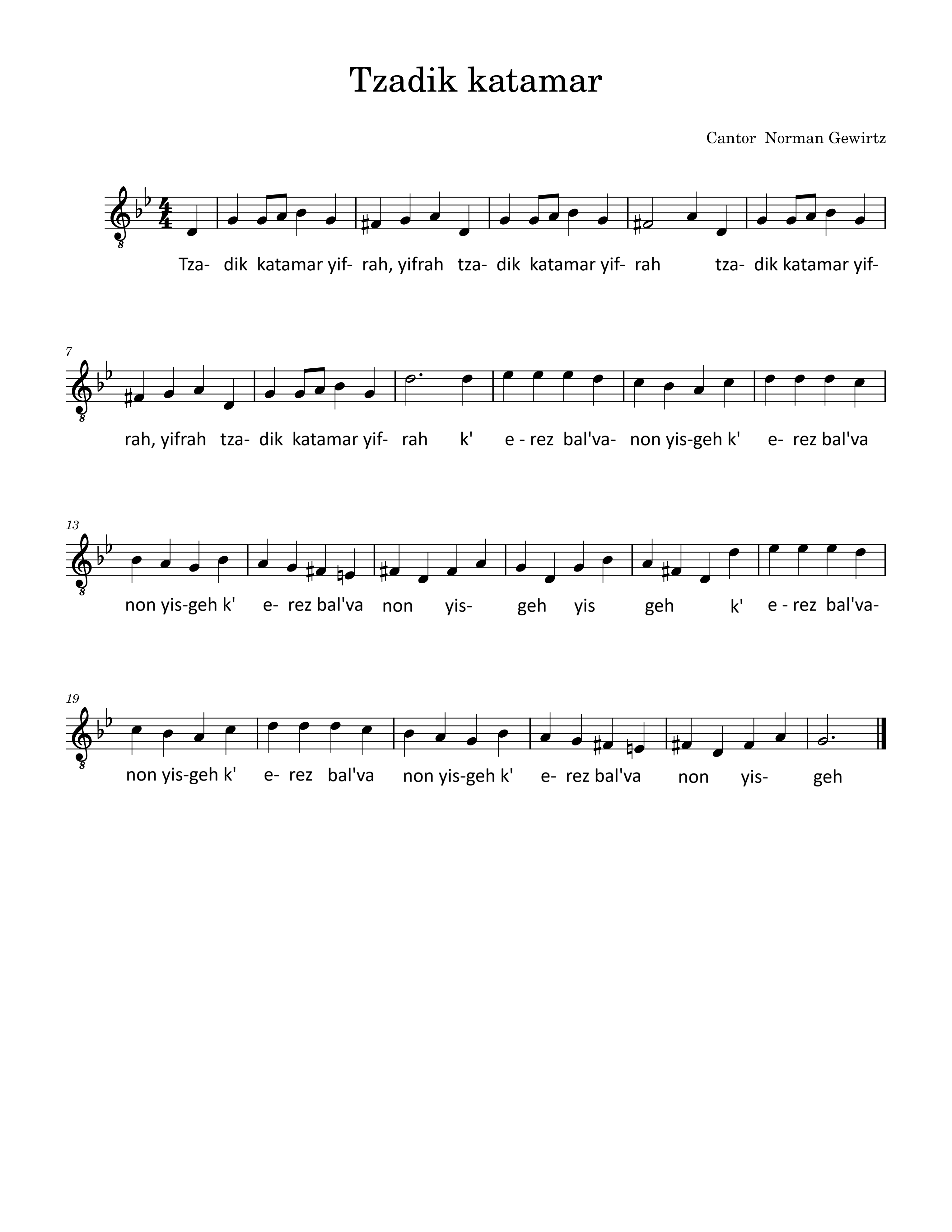As recalled by Ernest Davis
In 1963, my family moved to Providence, R.I., and I attended the Providence Hebrew Day School from second through eighth grade. When I was in the seventh or eighth grade — that is, around 1969-70 — Cantor Norman Gewirtz*, who was cantor at the local Temple Beth El, organized a group of fifteen or twenty students in my class and perhaps the adjoining classes to sing some songs on passages, mostly from Pirkei Avot. We performed these a capella at some school event — probably graduation.
My guess is that these were original compositions of Cantor Gewirtz, but perhaps he got them from somewhere else, or he may have adapted some pre-existing melodies to the texts. However that is, the songs have stuck with me through the 55 years that have elapsed and have given me a lot of pleasure. I think of the melodies whenever I think of the passages; I suspect that they have deepened my appreciation for some of these texts. Since there doesn't seem to be any other record of them, and since there are probably not many other people who remember them, I thought I should record them. So I have done that, here, as best as I was able, in musical scores and in both synthesized wordless music and my own singing. As noted below, some of these were in two-part harmony, but I have forgotten the harmonization, and do not have the skill to reconstruct it, so I have noted only the melody.
I remember nine songs. There may have been one or two more.
This was a four-part round. Thanks to my classmate Gil Stein for reminding me of this.
This was in two-part harmony.
I think this was in two-part harmony, but it may have been in unison.
I have cut and pasted the above Hebrew texts from Sefaria.org, but other texts have להבתל and שמתן and those were certainly what was sung.
I think this was sung in unison.
Many texts have "v'eyn" rather than Sefaria's "v'iy", and that is how it was sung.
This was in two-part harmony. I wish I could remember the harmony. It was sophisticated; at times the second voices sang together with the first, at times they were delayed. This is my favorite of the collection.
This was in two-part harmony. Regrettably, I don't remember even the melodic line past the seventh measure, perhaps because I'm confusing it with the harmonic line. What I have written and recorded is the best reconstruction I can manage. The song is shorter than most, but I'm fairly sure that there wasn't any more. Certainly it would not have continued with the rest of the Mishnah.
בֶּן בַּג בַּג אוֹמֵר, הֲפֹךְ בָּהּ וַהֲפֹךְ בָּהּ, דְּכֹלָּא בָהּ. וּבָהּ תֶּחֱזֵי, וְסִיב וּבְלֵה בָהּ, וּמִנַּהּ לֹא תָזוּעַ, שֶׁאֵין לְךָ מִדָּה טוֹבָה הֵימֶנָּה:
Ben Bag Bag said: Turn it over and turn it over, for everything is in it. And in
it you should look, and grow old and worn with it, and du not budge from it, for there
is nothing better than it for you.
Pirkei Avot, 5:22.
The meaning of "Vlei" and the best translation of "middah" in this context are not at
all clear.
This was sung in unison.
אָמַר רַבִּי אֶלְעָזָר אָמַר רַבִּי חֲנִינָא: תַּלְמִידֵי חֲכָמִים מַרְבִּים שָׁלוֹם בָּעוֹלָם
Rabbi Elazar said that Rabbi Hanina said: Torah scholars increase peace in the world.
Berachot 63:a and Shacharit service.
I think this may have been a two-part round.
צַ֭דִּיק כַּתָּמָ֣ר יִפְרָ֑ח כְּאֶ֖רֶז בַּלְּבָנ֣וֹן יִשְׂגֶּֽה
The righteous bloom like a date palm; they thrive like a cedar in Lebanon.
Psalm 92:13
* A memorial notice for Cantor Gewirtz can be found in the November 2012 issue of the Rhode Island Jewish Historical Notes, p. 395 (p. 211 of the PDF). Thanks to my brother Joey for locating this.
